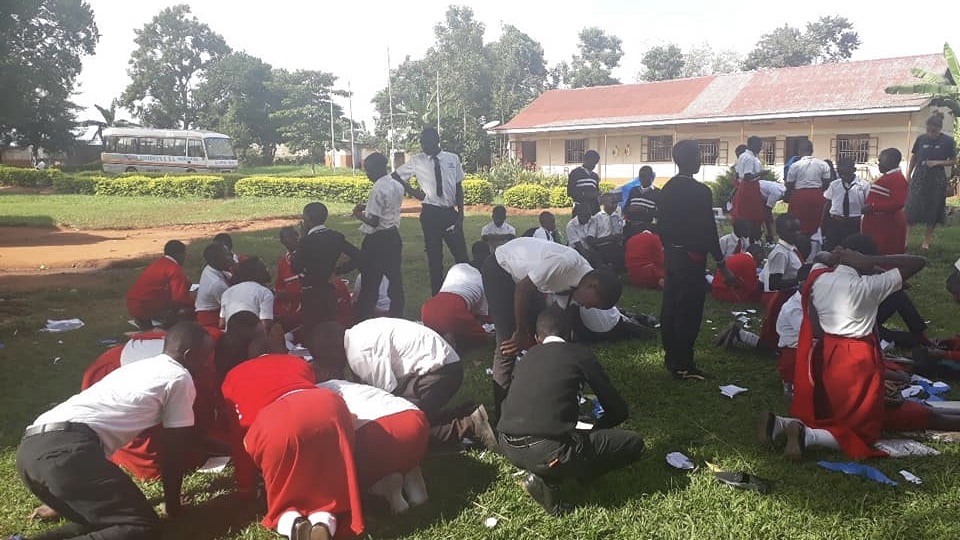The way education works in 3rd world countries such as Uganda is completely different from the way we know education in the UK. First of all, we don’t have to pay to get a complete education and secondly, we do not work as hard. Schools in Uganda send out for school fees every term, and when they do this about half of the students at the school have to go home to work to raise the funds for a couple of weeks to be able to pay to go back and sit the exams. As well as this many of the children have jobs that they work alongside their schoolwork. This is highly demanding especially when the school day starts at 7.45am and finishes at 5.15pm, as well as extra hours on a Saturday morning. However, the children are happy to be there because they realise what an advantage and an honour having an education is. Whilst teaching children about SRHR (Sexual and Reproductive Health and Rights) we asked many of them what they wanted to be when they are older, most of them said a lawyer or a doctor, whereas if you ask a UK you would get less specific responses, showing that we take education less seriously and sometimes take it for granted. Teaching and controlling 90 children in one classroom were not without its challenges especially in a classroom with only 1 light at the front and an old-style chalkboard. But the children all worked hard and even when they weren’t at school would spend hours doing their homework. I lived with 6 girls, 4 of whom went to school every day and when they came home, they would say that they loved school.
However, the education system in Uganda is lacking in this type of education (SRHR), which is very important. In schools the teachers are either not equipped or willing to talk to their students about this subject and this is because there is a very big taboo about it. All the schools are willing and desiring for companies such as Restless Development to come in and help educate their students. Unfortunately, whilst being out in Uganda my team and I had to change schools, but it wasn’t long that we were out of teaching because the amount of schools in the local area that wanted us to come in and lead sessions for their students. Whilst doing an interview with the Headmistress of the 2nd school that I had the pleasure of being placed in, she highlighted the importance that the youth are taught about issues relating to puberty and periods, as many of the students are not taught this from a young enough age. There are also several myths surrounding the subject of period and puberty that made it something scary and caused many unnecessary concerns amongst the youth.
Many of the girls had no access or money to buy sanitary products. To try and combat this we taught the Out of school Youth and the Senior 1 (year 7) Class how to make reusable sanitary pads. These are made from thin and thick cotton cloth, polythene bag and a button. All of the materials were easily accessible for the youth, even the girls in the boarding section managed to find the materials. The Headteacher also told us that she was planning to provide the girls in the boarding section with the materials and tools to make their own. During our last week we had a big debrief event in which all of the teams in the district got a group from their Out of School Youth and a group of students to demonstrate what we had taught them. The children we chose to represent the school we had worked in, were so enthusiastic about it and were willing to teach other years and other girls that live in the boarding section how to make them. For them to be able to recall all the steps and processes felt amazing as it actually felt as though we had made a tiny bit of difference towards a big issue that it slowly being resolved.


